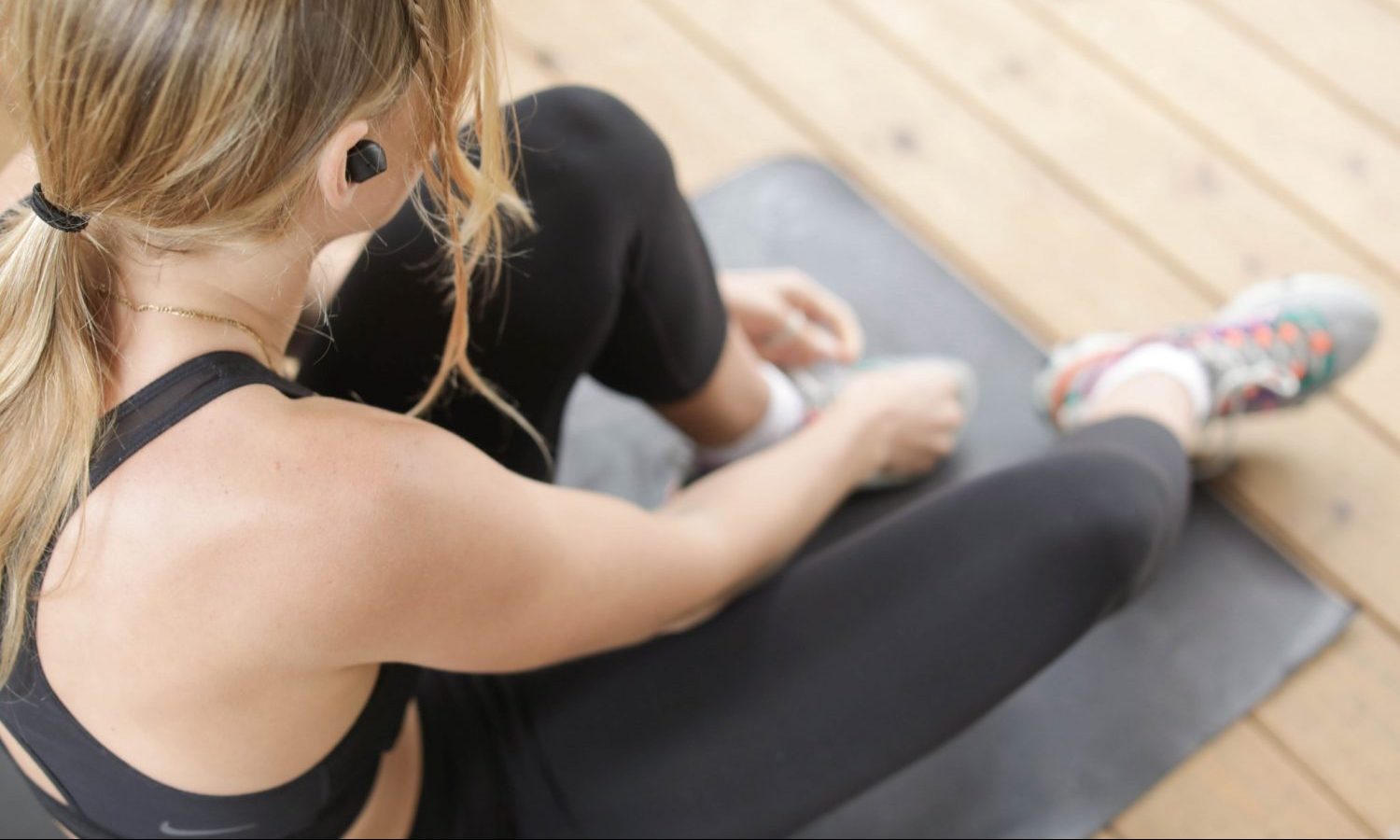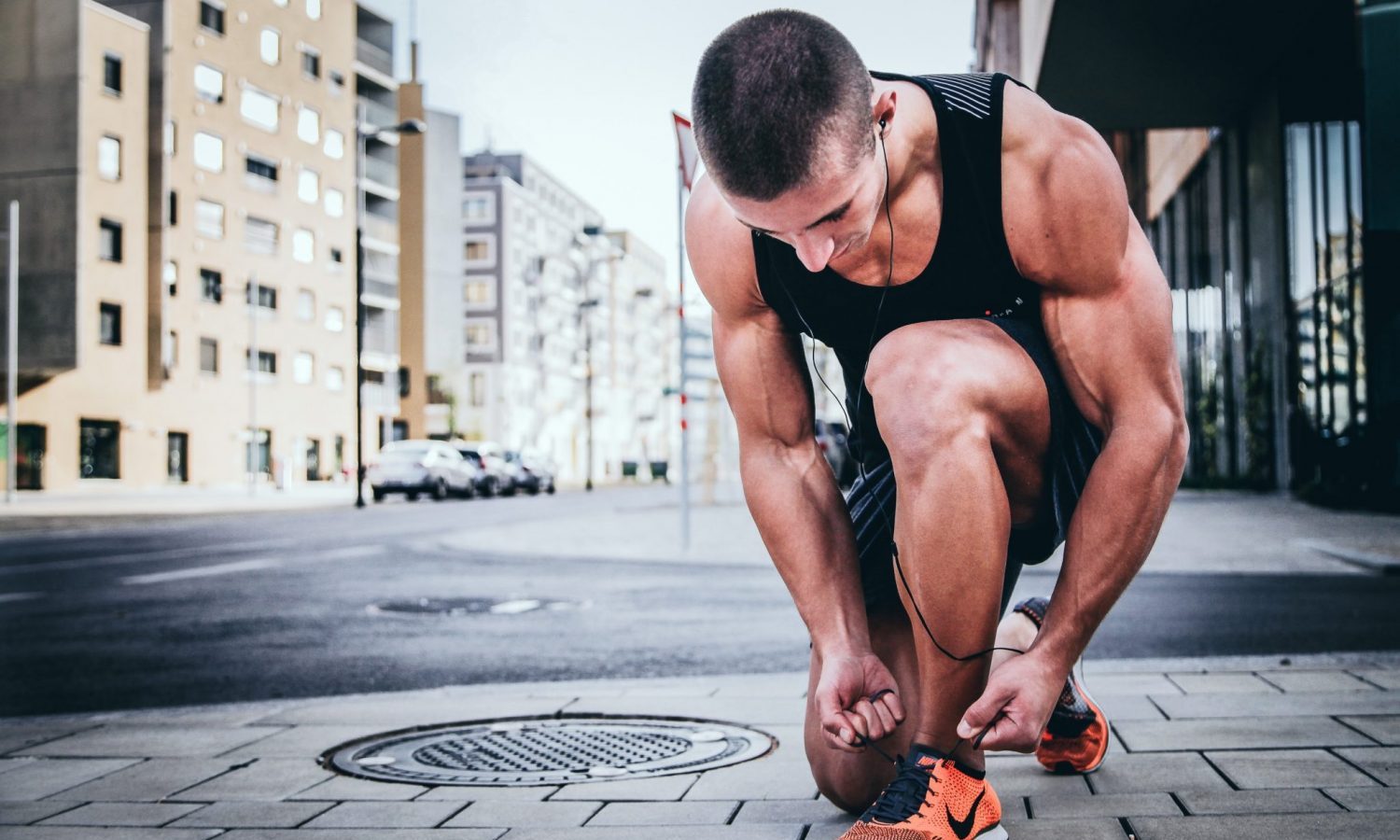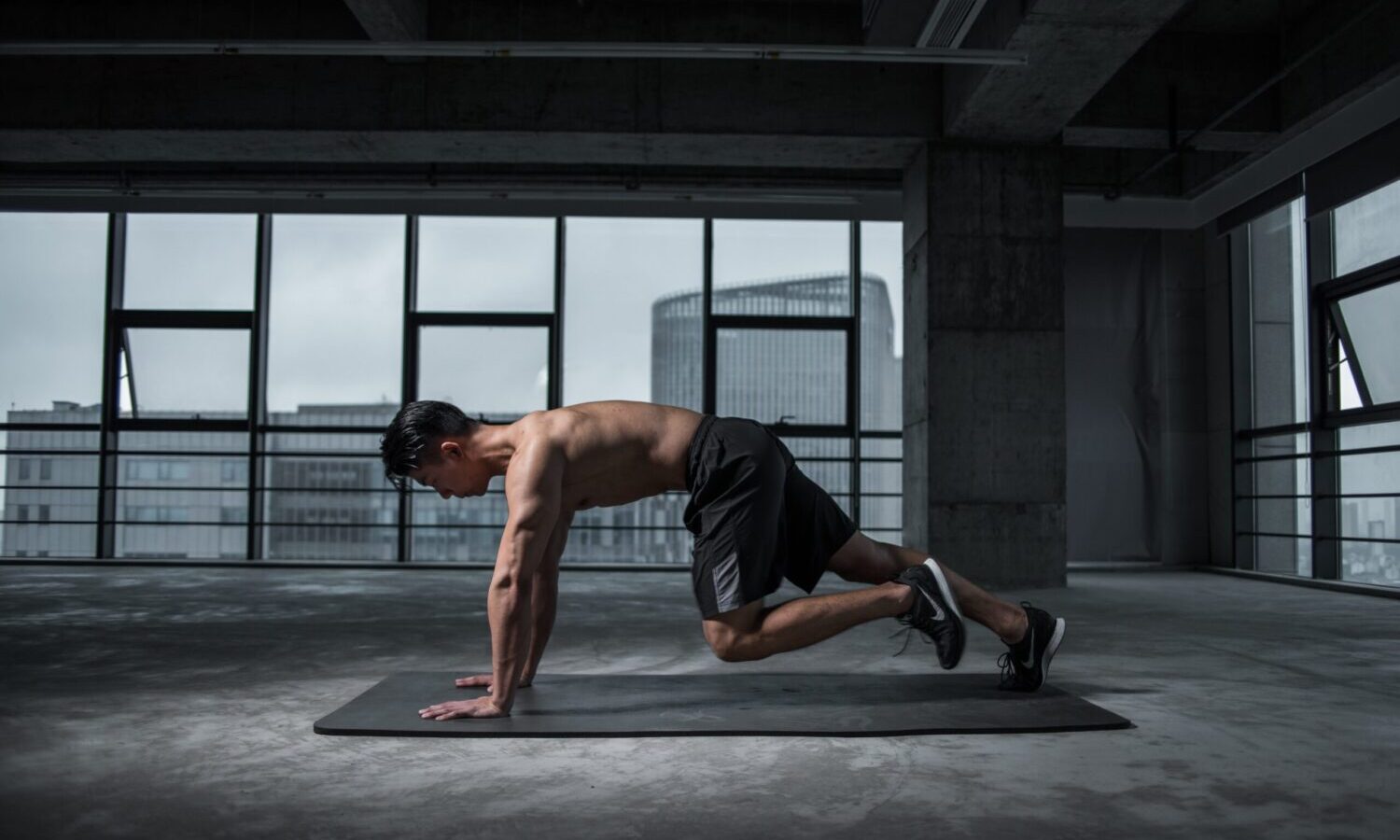Cannabis is such an effective recovery aid that many professional athletes have secretly used cannabis to help them recover, even when it might have cost them their career.
We all know exercise is good for us. But sometimes we forget recovery is just as important. To get back to the activity you love, you need to recover in an optimal amount of time. The body has natural mechanisms of recovery, but with work, kids and social obligations, sometimes life gets in the way and recovery takes a backseat to training. But if you repeatedly exercise without letting your body recover, you can put yourself in a state of overreaching that can negatively affect your mood and energy levels.
Many people use cannabis and CBD products to help them recover quickly from the wear and tear of exercise or daily life.
What Does Using Cannabis to Recover From Exercise Look Like?
It could be an ICU nurse finishing a grueling shift and taking a puff from a CBD cartridge to ease her aching feet; a martial artist massaging a 1:1 salve into his battered joints to get back into the dojo as soon as possible; or an active mother juggling workouts, kids and a new business who uses cannabis tinctures to relax, improve her appetite, and sleep soundly through the night. Regardless of how you use it, cannabis and CBD can aid many of your body’s natural healing mechanisms.
Does Cannabis Speed Up Recovery?
Cannabis is such an effective recovery aid that many professional athletes have secretly used cannabis to help them recover, even when it might have cost them their career. Why? Because cannabis has pain relieving, appetite enhancing, stress relieving, sleep enhancing and mood boosting effects—all factors that contribute to a timely recovery.

Nate Jackson, the former tight end for the Denver Broncos, wrote an opinion piece in 2017 for the Los Angeles Times, discussing his cannabis use while playing in the NFL—during a time when team doctors rampantly over-prescribed opiates. Jackson wrote:
“By the time I tore my groin off the bone, in 2007, I was medicating only with cannabis. The team doctors cheered the speed at which I was healing, but I couldn’t disclose to them all that I was experiencing — no pain, no inflammation, restful sleep, vigorous appetite, a clear head. Despite the positive results that I and many others were getting from our own regimens, we had to remain generally mum about cannabis.”
Many casual athletes have also recognized the recovery-enhancing benefits of cannabis. According to a 2019 survey that Jointly discussed in Can Adult Athletes Benefit From Cannabis, over 75% of adults who use cannabis after exercising do so to improve recovery.
A separate survey from 2019 conducted by social psychologist Angela Bryan assessed how cannabis users consumed marijuana in relation to exercise, and found that 77% of people who used cannabis with exercise agreed or strongly agreed that “cannabis enhances recovery from exercise.”
People certainly feel that cannabis helps them recover better and faster, but what does the science say? Unfortunately, due to federal prohibition on cannabis, researchers have not done controlled studies looking at how cannabis affects physical recovery. However, there are various mechanisms by which cannabis or CBD could aid recovery.
What Is Recovery?
Exercise, particularly high-intensity and resistance exercise, creates damage in the form of “perturbations of the skeletal muscle,” which results in a loss of strength that continues until your body repairs itself. This damage is called exercise-induced muscle damage (EIMD), and is characterized by a complex process involving delayed onset muscle soreness, swelling and inflammation. These symptoms generally peak around 24-48 hours after exercise, and are recovered in about 7 days.
Researchers have stated, “Precisely defining ‘recovery from exercise’ is a challenging task due to the varied means of recovery.” For example, are you recovered when you are fully healed back to baseline, or simply ready for additional training stress?
Despite the debate over the term, recovery is generally considered to be the resolution of pain, soreness, swelling and inflammation, paired with the adaption of the tissue and a return to normal strength. In the context of physical recovery, inflammation is not the enemy, but rather “a key process underlying muscular repair and regeneration.”
When you use cannabis or CBD to recover, the goal is to aid and accelerate your body’s natural repair mechanisms with cannabis or CBD to get you back on the trail, the court or the slopes.

What Does the Science Say?
The body has natural mechanisms of recovery, so what gets in the way?
Time seems to be a limiting factor, but no one can get more hours in the day, so sports medicine scientists have indicated that using additional therapies to alleviate symptoms of muscle damage “may be advantageous to individuals who require rapid recovery between bouts of physical activity.” And there is ample anecdotal evidence that cannabis is one of the most effective natural therapies for accelerating physical recovery.
Why Might Cannabis Help People Recover?
Dr. Michael Gleeson, a professor of exercise biochemistry at Loughborough University, discussed six factors that can decrease recovery from exercise: muscle soreness; poor exercise performance; decrease in appetite; infection; quality and quantity of sleep; gastrointestinal abnormalities.
RELATED: How Your Endocannabinoid System Affects Your Cannabis Experience
One factor that Dr. Gleeson does not mention is psychological stress, which research has shown adversely affects muscle recovery in the short term after exercise-induced damage.
While the effects of cannabis on exercise recovery have not been directly studied, there is evidence that cannabis and CBD can benefit several of these conditions that inhibit recovery, specifically muscle soreness, appetite, sleep, and psychological stress.
Inflammation
Intense exercise “triggers a flood of chemicals known as cytokines, some of which inflame muscles, that manifests as soreness the next day.” As discussed in Can Athletes Benefit from CBD, numerous studies have demonstrated that CBD exerts an anti-inflammatory effect. In preclinical trials, CBD inhibited production of “pro-inflammatory cytokines and reactive oxygen species” and stimulated production of anti-inflammatory cytokines.
Pain and Soreness
Exercise-induced muscle damage is associated with significant muscle pain and soreness. Specifically for exercise induced muscle damage, the conventional methods of treating pain seem to actually negatively affect muscle adaption. Non-steroidal anti-inflammatory drugs (NSAIDs) are usually the first-line of defense against pain and soreness after a vigorous workout, but these drugs “have been reported to attenuate exercise-induced skeletal muscle adaption.” That means that Ibuprofen may actually limit the ability of your muscle to recover from training.
In elite sporting contexts, players are often overprescribed opiates to treat their persistent pain and soreness. However, opiates are lethal in high doses and profoundly addictive, whereas it is physically impossible to ingest a lethal dose of cannabis, and cannabis products have far lower potential for abuse.
RELATED: What Makes Weed So Sticky? And Is It A Good Thing?
This reality forced the NFL to change their rules in 2020 such that the League will not suspend players if they test positive for cannabis. Many people have found great success in treating their muscle pain and soreness with CBD or cannabis.
The endocannabinoid system “has been shown to play an important role in the modulation of a wide range of physiological processes including neurotransmission, pain perception and inflammation.” According to researchers who study cannabis and pain, “it is not an exaggeration to state that all experimentation using animal models of pain” have suggested that cannabis exerts a significant analgesic effect.

Eating
With all of the stress of modern life, sometimes it can be challenging to work up an appetite even if you have worked out. However, eating is one of the most important parts of recovery. In the sports science world, it is well known that “negative energy balance will interfere with wound healing,” which means that if you eat too few calories, your body will not have the building blocks to recover. Cannabis makes most people want to eat, which is great in the context of physical recovery.
RELATED: Why Does Weed Give You The Munchies?
As far back as 300 C.E., physicians in India recommended cannabis “to treat loss of appetite.” Scientists consider THC and other CB1 receptor agonists to “reliably induce hyperphagia.” As a result, many athletes and active individuals use the appetite enhancing aspect of cannabis to boost their recovery. For example, an anonymous former college basketball player said, “You could be smoking as like an appetite enhancer. I’d be putting on more weight and more muscle in the gym.”
Sleep
Whether it is work stress, caffeine, kids, light pollution or your downstairs neighbor, sometimes you just can’t get the sleep you need to recover. Many people use cannabis and CBD to fall asleep and stay asleep longer. According to strength coach Anthony Ricciuto, “Muscle damage from a workout gets repaired during the sleep cycle—the body’s cells are recycled and a cascade of different hormones is activated to produce muscle growth.”
As we explored in Can Cannabis Help Seniors Sleep, researchers have found that daily cannabis use led to greater total sleep time in older adults. For an in-depth look at how you can use cannabis to improve your sleep, head over to Cannabis, CBD and Improving Sleep.
Psychological Stress
While Gleeson et al. does not discuss psychological stress as a factor that can inhibit recovery, there is evidence that “life event stress” decreases short term muscle recovery, even when controlling for physical fitness, workload and training experience.
While there is no research specifically looking at the way cannabis impacts psychological stress and how that relates to physical recovery from exercise, perhaps the acute psychological benefits of consuming cannabis or CBD contribute to its usefulness as a recovery aid.
There are many ways cannabis and CBD can help you recover, so how can you find out if cannabis or CBD is the right choice for you?
Use Jointly to Recover with Cannabis and CBD
Use Jointly, a brand-new cannabis wellness app, to learn if cannabis and CBD can help you achieve your wellness goals. Jointly is a free tool that allows you to track and record your CBD and cannabis consumption, including the dose, time of use, composition of the cannabis product and various other factors that can influence your experience.
As you track your cannabis consumption on Jointly, you will learn about the factors that can impact your cannabis experience and how to eliminate side effects. You will also gain important insights from the Jointly community. For example, in general Jointly users find better results with physical recovery when consuming tinctures or topicals versus flower or edibles. To learn why we might be seeing these data, head over to Jointly Product Type Report Volume 1.
Perhaps you will discover that you recover best when you take a tincture after you have worked out, and with some food in your stomach. You need to track and record your cannabis consumption on Jointly to learn that about yourself. As you use the app, Jointly will build a personalized recommendation engine that suggests actionable advice like new routines and better products. When you use Jointly, you are actually rating how well a product helped you achieve your wellness goal. Over time, your average ratings should go up as you optimize how you consume cannabis and CBD. Use the Monitor Your Progress feature to make sure your results are improving over time.
Finding Cannabis and CBD Products for Physical Recovery
Looking for products to help you recover faster and get back to the activity you love? Brands and manufacturers have designed a vast range of legal cannabis and CBD products for this exact purpose: CBD-infused protein bars; full-spectrum Indica tinctures; 1:1 CBD:THC roll-on topicals. But how do you know if these products actually work? Jointly’s Product Finder (a cannabis and CBD catalog) allows you to look up legal, licensed cannabis and CBD products in your state based on your wellness goals. Select Physical Recovery and see how other users like you rated a product on a scale from 1-10, based on how well it helped them recover. That is why we like to think of Jointly like a cannabis social network.
By reporting your cannabis and CBD consumption, you are contributing important data to the Jointly community and helping Jointly make better product and routine recommendations for you.
Download the Jointly app on the App Store or the Google Play Store to get started on your cannabis wellness journey.
Sam Anderson is the content Director at Jointly, a cannabis wellness company powered by a proprietary data platform to help people reach their full potential. The company was created on the premise that purposeful cannabis consumption is the key to unlocking a better you. This article originally appeared on Jointly and has been reposted with permission.


